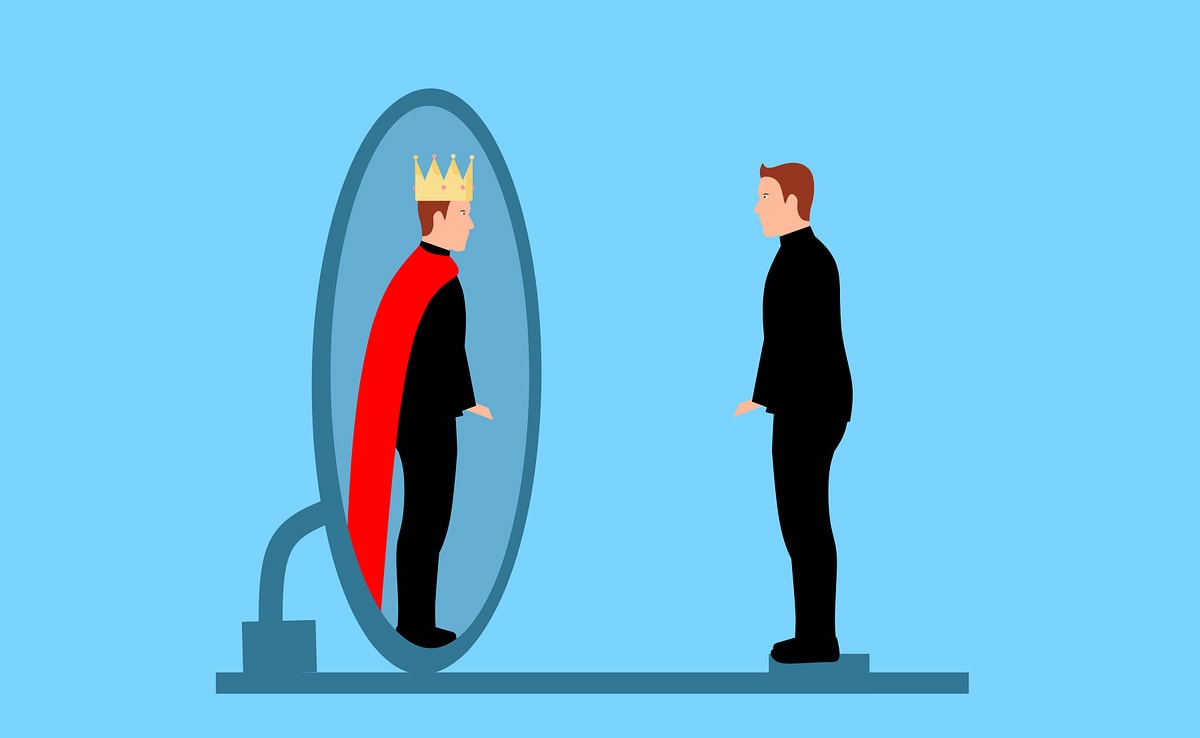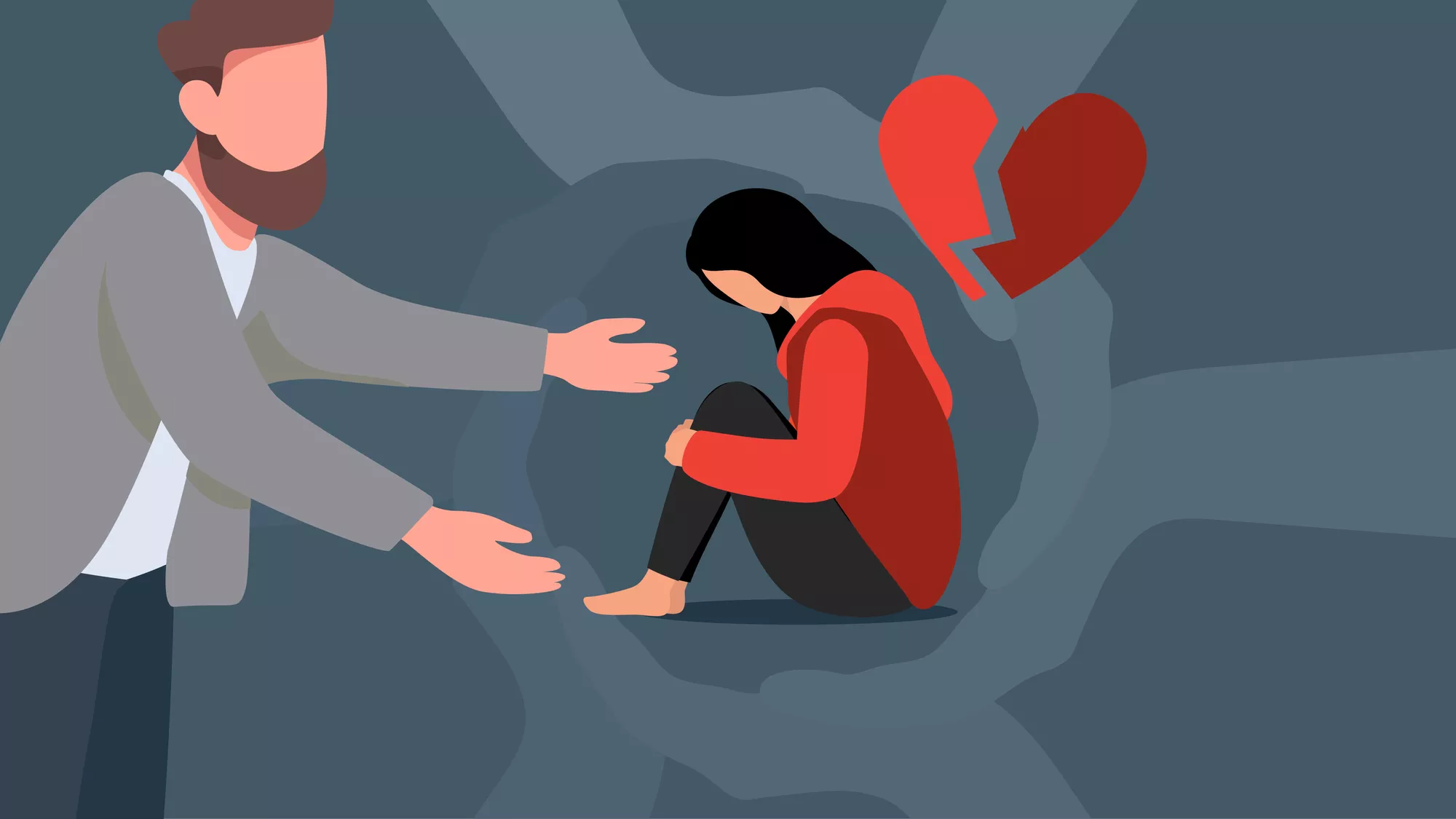Is My Partner a Narcissist? Navigating Narcissism In Relationships
Understanding Narcissism
Relationships can be challenging, but being in a relationship with a narcissist can feel emotionally draining, confusing, and even damaging. If your partner constantly seeks attention, lacks empathy, manipulates situations, or makes you feel like you’re always at fault, you may be wondering: “Is my partner a narcissist?”
Narcissistic behaviour exists on a spectrum. While some people exhibit narcissistic traits occasionally, others may have Narcissistic Personality Disorder (NPD), a more severe and chronic condition.
What Is Narcissism?
Narcissism is a personality trait characterized by self-importance, a lack of empathy, and a constant need for admiration. While many people can show narcissistic tendencies from time to time, a clinical narcissist has persistent behaviours that affect their relationships and interactions with others.
Narcissistic Personality Disorder (NPD)

Narcissistic Personality Disorder is a mental health condition recognised in the Diagnostic and Statistical Manual of Mental Disorders (DSM-5). It is marked by grandiosity, a need for excessive admiration, and a disregard for others’ feelings. People with NPD often struggle with maintaining healthy, fulfilling relationships due to their self-centred nature.
6 Common Characteristics of Narcissism
- A grandiose sense of self-importance (believing they are superior to others).
- A deep need for admiration and validation.
- A lack of empathy (struggling to understand or care about others’ feelings).
- Manipulative and controlling behaviour.
- Extreme sensitivity to criticism (reacting with rage or defensiveness).
- A sense of entitlement (believing they deserve special treatment).
Not all narcissists display these traits in apparent ways.
Some are covert narcissists who appear shy, self-pitying, or passive-aggressive rather than openly arrogant.
How Do You Know If Your Partner Is a Narcissist?

Being in a relationship with a narcissist can leave you feeling emotionally drained, undervalued, and confused. Here are some signs that your partner may be a narcissist:
1. They Constantly Seek Validation and Admiration
A narcissistic partner thrives on attention and praise. They may constantly fish for compliments, exaggerate their achievements, or expect you to prioritize their needs above everything else.
2. They Lack Empathy
A narcissist struggles to understand or care about your emotions. When you express hurt or disappointment, they may dismiss your concerns, blame you, or make you feel guilty for bringing it up.
3. They Manipulate and Gaslight You
Gaslighting is a form of emotional manipulation where the narcissist twists facts, denies past events, or makes you doubt your reality. You may hear phrases like:
- “You’re too sensitive.”
- “That never happened.”
- “You’re imagining things.”
4. They Have a Grandiose Sense of Self
Narcissistic partners believe they are more intelligent, talented, or important than others. They often brag about their achievements and belittle those who do not admire them.
5. They Lack Accountability
Narcissists rarely take responsibility for their actions. If something goes wrong, they will blame you or others, refusing to acknowledge their mistakes.
6. They Use Love as a Weapon
Narcissists engage in “love bombing”—showering you with attention, gifts, and affection—only to withdraw love, become cold, or punish you emotionally once they feel in control. This creates an addictive cycle that keeps you hooked.
7. They Make Everything About Them
Conversations with a narcissist often revolve around their needs, experiences, and opinions, leaving little room for you to express yourself.
8. You Feel Drained and Insecure
Over time, being with a narcissistic partner can make you feel mentally and emotionally exhausted. You may feel like you’re constantly walking on eggshells, afraid of upsetting them or causing conflict.
Stages of the Narcissistic Abuse Cycle

Narcissistic abuse follows a predictable cycle that keeps victims emotionally trapped and confused. This cycle typically consists of four key stages: Idealization (Love Bombing), Devaluation, Discard, and Hoovering. Understanding these stages can help victims recognise manipulation, break free, and begin the healing process.
1. Idealization (Love Bombing Stage)

The cycle begins with intense affection, admiration, and attention—a tactic known as love bombing.
The narcissist overwhelms their victim with flattery, gifts, compliments, and promises of an ideal future.
Signs of Love Bombing:
- Constant texting, calls, and social media attention.
- Excessive compliments and declarations of love early in the relationship.
- Grand romantic gestures (expensive gifts, vacations, extravagant dates).
- Claiming you are their “soulmate” or “perfect match” too soon.
- Pushing for quick commitment (moving together, marriage, or exclusivity).
The goal of love bombing is to gain your trust and emotional dependence.
The narcissist creates an illusion of the “perfect relationship” so that when they eventually shift to devaluation, you will feel desperate to regain their affection.
2. Devaluation Stage

Once the victim is emotionally invested, the narcissist gradually shifts from idealization to criticism, control, and emotional manipulation. This stage happens slowly, making it difficult for victims to recognise the change.
Signs of Devaluation:
- Subtle criticisms: They may insult your intelligence, appearance, or choices, often disguised as “jokes” or “constructive feedback.”
- Gaslighting: They deny things they said or did, making you question your memory and reality.
- Emotional withdrawal: Affection and validation become unpredictable—leaving you confused and craving their approval.
- Comparisons to others: They might praise exes, friends, or strangers to make you feel insecure.
- Blame-shifting: They make you feel responsible for your moods, anger, or failures.
This phase destroys the victim’s self-esteem, making them work harder to “earn back” the narcissist’s affection. The more they degrade you, the more you seek their approval, deepening the trauma bond.
3. Discard Stage

At some point, the narcissist loses interest in their victim or seeks a new supply. The discard stage is often cruel, abrupt, and emotionally devastating for the victim.
How Narcissists Discard Their Victims:
- Sudden withdrawal: They stop answering calls or texts, leaving you confused and heartbroken.
- Replacing you quickly: They move on to a new partner without explanation or remorse.
- Public humiliation: They might badmouth you to mutual friends or online.
- Blaming you for the breakup: They portray themselves as victims, shifting responsibility onto you.
The discard stage leaves victims emotionally wrecked, often making them beg for the narcissist’s attention—which gives the narcissist even more power.
4. Hoovering (Pulling You Back In)

Even after discarding you, narcissists rarely let go completely. They often return with “hoovering” tactics, trying to suck you back into the cycle.
Common Hoovering Tactics:
- Fake apologies: They claim they’ve changed, promising to treat you better.
- Guilt-tripping: They remind you of the good times, making you question if leaving was a mistake.
- Using mutual friends or family: They send messages through others to regain access to you.
- Pretending to need help: They create a crisis (health issues, financial problems) to make you feel responsible.
- Sudden nostalgia: They reminisce about happy memories to stir emotions.
The goal of hoovering is not genuine love—it’s to regain control and restart the abuse cycle.
How to Break the Narcissistic Abuse Cycle

1. Recognise the Pattern
Awareness is the first step. It becomes easier to detach emotionally once you understand the idealization, devaluation, discard, and hoovering cycle.
2. Go No-Contact (or Set Firm Boundaries)
The best way to escape a narcissist is to cut off communication altogether. Establish firm emotional boundaries if you must stay in contact (co-parenting, shared workplace).
3. Rebuild Your Self-Esteem
Narcissistic abuse damages self-worth. Healing requires:
- Therapy or counselling.
- Engaging in self-care and hobbies.
- Surround yourself with supportive friends and family.
4. Seek Professional Help
Breaking free from a narcissistic relationship is difficult without support. Relationship counselling can help you understand the trauma bond, rebuild confidence, and set healthy relationship patterns.
Gold Coast Couples Counsellor Lee Calleja at Chirn Park Health Group offers relationship counselling and recovery support through online and in-person sessions in Southport.
Click Here To Make A Counselling Appointment
Am I a Narcissist?

If you’re wondering whether you might be a narcissist, it’s essential to self-reflect.
Most people with self-awareness and concern for others’ feelings are not true narcissists. However, here are some questions to consider:
- Do I feel entitled to special treatment?
- Do I struggle with criticism and react defensively?
- Do I manipulate others to get what I want?
- Do I lack genuine concern for other people’s emotions?
If you recognise some of these traits, seeking counselling or therapy can help address unhealthy behaviours and improve emotional connections.
Can a Narcissist Change?
Change is possible but rare and requires deep self-awareness, commitment, and professional therapy.
Narcissism is deeply ingrained, and most narcissists lack the motivation to change because they do not see their behaviour as a problem.
For change to occur:
- The narcissist must recognise their harmful behaviours.
- They must actively seek therapy and be willing to work on emotional regulation.
- They must commit to long-term behavioural change, which is often tricky.
Unfortunately, many narcissists refuse to acknowledge their flaws, making lasting change unlikely without professional intervention.
Is a Sociopath the Same as a Narcissist?

While narcissists and sociopaths share some similarities, they are not the same.
- Narcissists crave attention, admiration, and validation. They manipulate others to boost their ego but are not necessarily dangerous.
- Sociopaths (those with Antisocial Personality Disorder) are more calculated, deceitful, and often lack a conscience. They manipulate others for personal gain; some can be physically aggressive or criminally inclined.
While both may engage in manipulation and lack empathy, sociopaths tend to be more dangerous and unpredictable.
Can Narcissism Relationship Counselling Help?

If you’re in a relationship with a narcissist, you may feel trapped, emotionally exhausted, or unsure of what to do next. Counselling provides a safe and supportive space to:
- Recognize emotional manipulation and gaslighting.
- Rebuild self-esteem after experiencing emotional abuse.
- Develop coping strategies to protect your emotional well-being.
- Decide whether to stay in or leave the relationship.
- Heal from past narcissistic abuse and form healthier relationships in the future.
If you suspect that your partner is a narcissist or if you are struggling with your narcissistic tendencies, professional support can help you navigate these challenges.
Lee Calleja on the Gold Coast offers couples counselling and emotional healing support through online video consultations and in-chair sessions at the Southport Clinic.
Contact Chirn Park Health Group For More Information
Reclaiming Your Life From a Narcissistic Partner: A Journey to Healing and Empowerment

Being in a relationship with a narcissist can be confusing, painful, and emotionally draining. Understanding the signs of narcissism, emotional manipulation, and gaslighting can help you make informed decisions about your relationship.
If you are struggling with a narcissistic partner or emotional recovery, seeking professional counselling is a crucial step toward regaining your confidence and well-being.
You deserve a relationship built on love, respect, and emotional security. Take the first step toward healing today.









